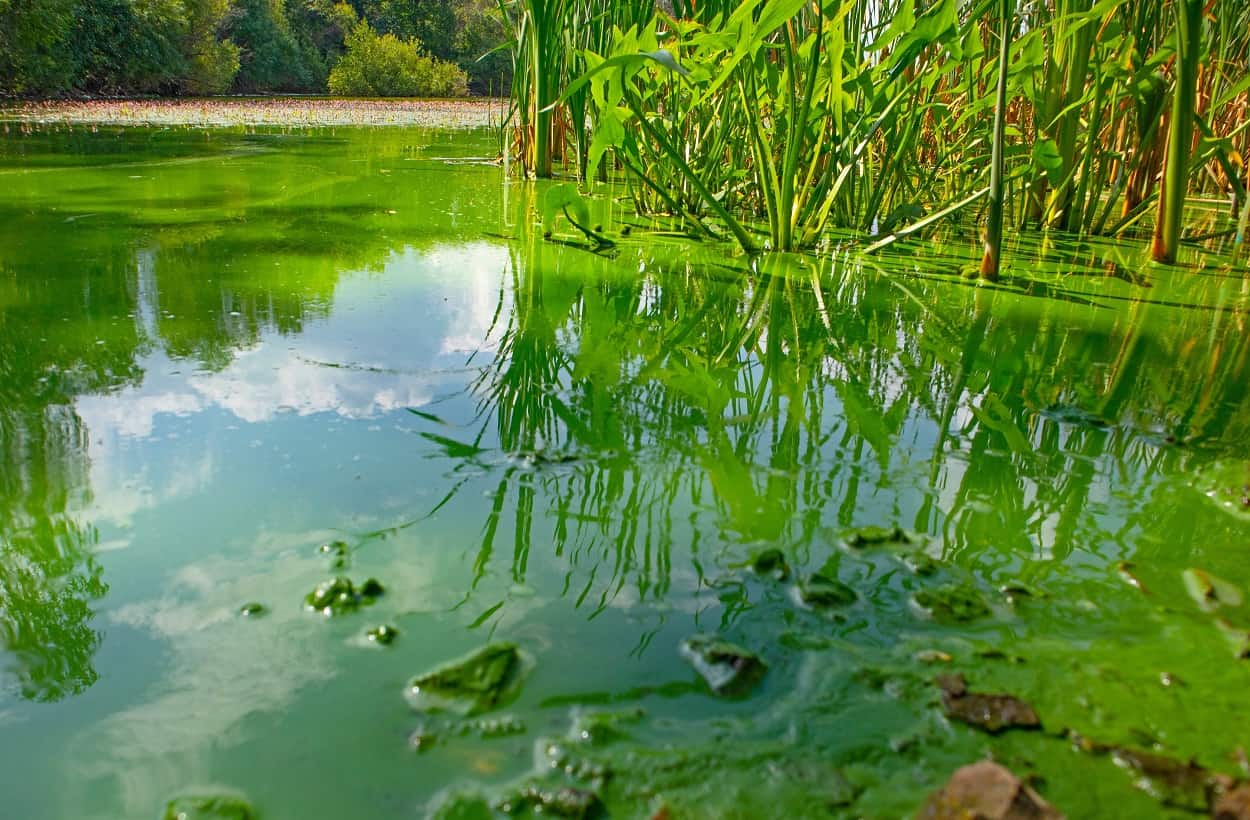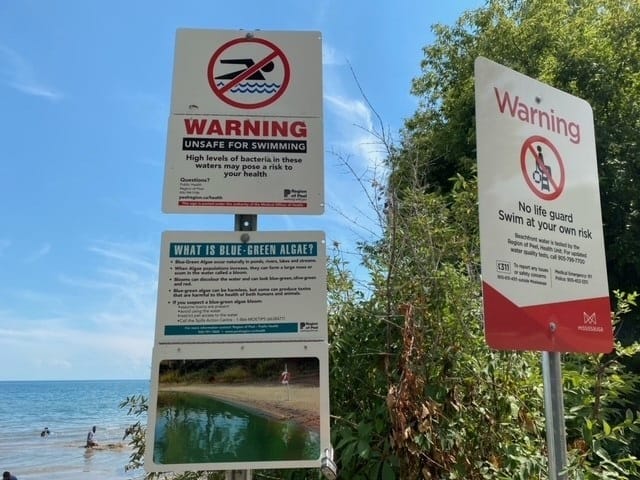Mississauga residents warned to avoid poisonous algae that smells of ‘rotting garbage’
Published September 1, 2022 at 12:57 pm

Mississauga residents are being urged to avoid a smelly and potentially poisonous blue-green algae that shows up in Lake Ontario as well as ponds, rivers and streams this time of year.
City of Mississauga officials say the algae, which “blooms” in late summer and early fall, can cause illness in people and pets that come into contact with or close proximity to it.
The algae, a type of bacteria that naturally occur in ponds, lakes and streams and at times makes the water look blueish-green or sometimes olive-green or red, can produce toxins that can be poisonous to humans, animals and aquatic wildlife.
“Toxins spread through contact, digestion and inhalation and in humans this can lead to diarrhea, nausea and breathing issues,” City officials said in a news release today (Sept. 1), adding the algae can smell like “rotting garbage.”
Officials note the algae is not normally visible in the water, but when conditions are right it can form a large mass or floating layer (scum) called a “bloom” that most often occur where the water is shallow, slow moving, warm and full of nutrients such as nitrogen and phosphorus.
“These nutrients can get into the water from fertilizer and contaminated stormwater runoff,” the City says.
“Blue-green algae blooms appear in the late summer and early fall and can be harmful to your health, the environment and our source of local drinking water. It’s important to know how to spot, prevent and report blue-green algae for your safety and the health of the environment.”

(Photos: City of Mississauga)
Officials say anyone spotting a blue-green algae bloom should assume that toxins are present.
Some tips include:
- check for swimming and fishing advisories before visiting lakes and rivers. Avoid using, drinking, bathing in, fishing or swimming in water when blue-green algae are present
- watch for dead fish and other dead animals along the shoreline. If you see an abundance of dead fish, contact the Ministry of Natural Resources and Forestry. For questions related to dead animal sightings in Mississauga, call Animal Services at 905-896-5858
- keep an eye on your pets. Don’t allow them to drink from or access the water or ingest any dead animals. The algae can also stick to your pet’s fur, which they can ingest when they clean themselves
- call the Spills Action Centre (1-800-268-6060) to report algae bloom sightings
Mississauga officials say they coordinate with Peel Public Health, which monitors water quality at three of Mississauga’s beaches: Jack Darling Memorial Park, Lakefront Promenade and Richard’s Memorial Park.
Signage is posted at these beaches if bacteria levels in the water are high enough to pose a health risk, the City adds.
Officials say residents can do their part to help prevent blue-green algae.
“When debris and nutrient waste, like animal waste and fertilizer, drain from your property and flow into the catch basins on your street, they make their way into our creeks and rivers. These pollutants end up in Lake Ontario, Mississauga’s largest source of drinking water,” the City says.
Officials recommend ways in which people can reduce the risk of blue-green algae:
- use phosphate-free detergents and cleaning products and consider taking your car to a commercial car wash instead of washing it on your driveway
- apply any commercial fertilizer products strictly according to the manufacturer’s instructions and prevent any excess fertilizer from spreading onto the roadway or sidewalks where it can wash into stormwater catch basins
- always pick up pet waste and dispose of it properly. Pet waste contains high nutrient levels, bacteria and viruses that make it a serious threat to water quality
For more information on the City’s stormwater system and how to prevent stormwater pollution, visit mississauga.ca/stormwater.
insauga's Editorial Standards and Policies advertising





